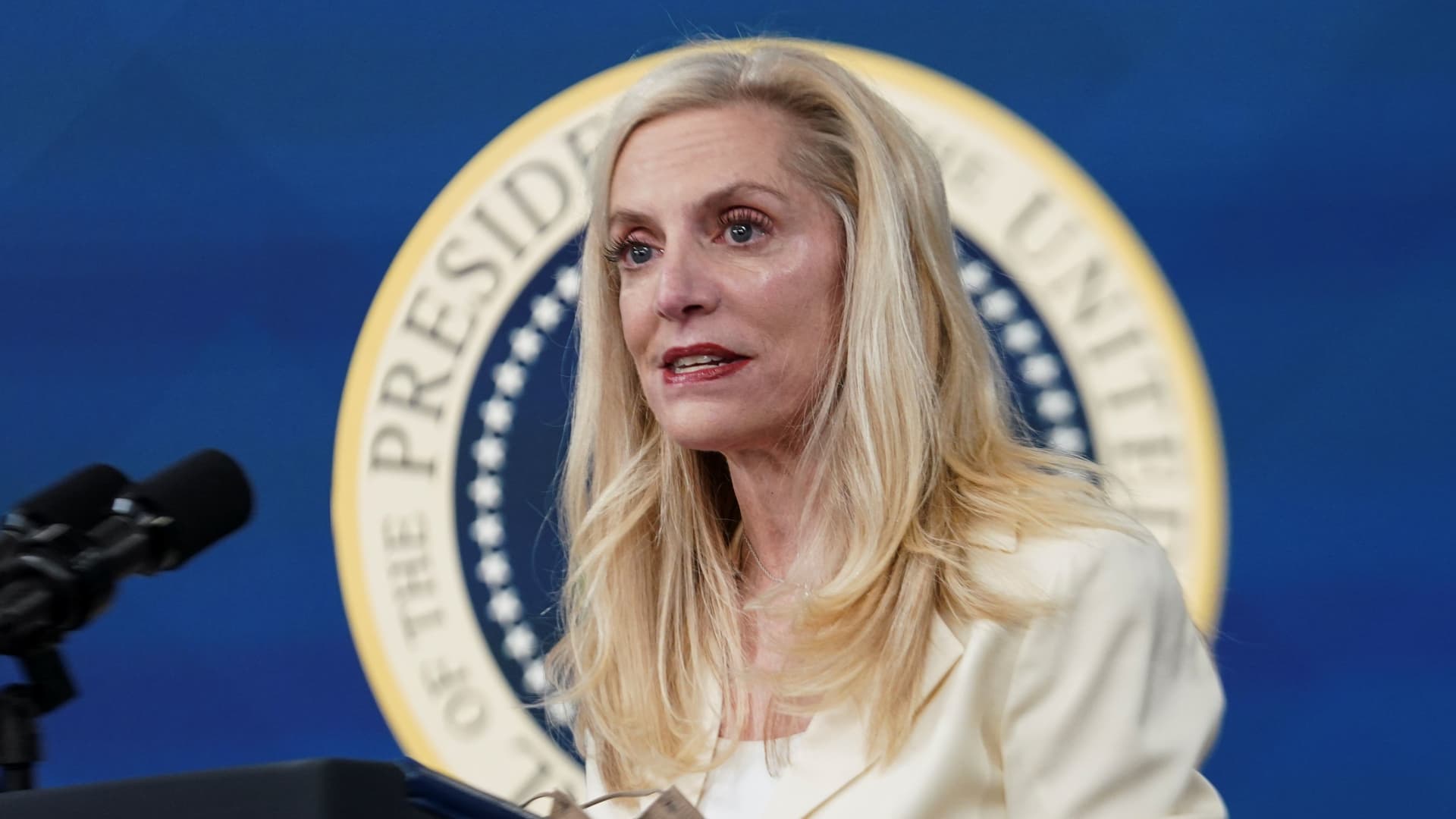The U.S. Senate on Tuesday confirmed Lael Brainard to be the Federal Reserve’s next vice chair, a long-awaited step in her ascent to the highest ranks of the nation’s central bank that cements her position as a key deputy to Chair Jerome Powell.
Though the vote came down to a close 52-43 margin, her confirmation was unsurprising. Brainard won support from Democrats and a handful of Republicans, including Wyoming Sen. Cynthia Lummis.
The vote proved tighter than expected because both Sens. Chris Murphy, D-Conn., and Ron Wyden, D-Ore., tested positive for Covid-19 and were unable to offer their formal support.
Brainard’s promotion, expected for weeks, is unlikely to change the Fed’s plan to increase short-term interest rates. She has served on the central bank’s board for years. Brainard, Powell and other central bank officials have promised over the past few months to hike interest rates and otherwise pull back on monetary stimulus to stop prices from rising at their current pace.
Inflation’s rapid climb, and unease over the Fed’s plans to make it more expensive to borrow, have put financial markets on edge this year. The S&P 500, the broad market index that tracks the equity performance of the largest U.S. companies, has fallen more than 11% this year.
Policymakers “have decided they need to get out in front of the rise in inflation as soon as possible to correct the situation,” Steven Ricchiuto, chief U.S. economist at Mizuho Securities USA, wrote in a note to clients Tuesday morning.
“The question investors need to answer is: When will enough be enough when it comes to the number?” he added.
Outside of monetary policy, Brainard has made a habit of objecting to otherwise-unanimous motions at the Fed to roll back financial regulations. Over the past four years, she opposed a series of steps by the central bank to ease laws enacted after the financial crisis of 2008-2009.
Until her first objection in 2018, no Fed governor had dissented since 2011.
Several other Fed nominees chosen by President Joe Biden are awaiting action in the Senate. The president has nominated Powell to a second term atop the central bank and has picked two economists, Lisa Cook and Philip Jefferson to serve as governors on the Fed’s seven-person board.
Some analysts and economists say Jefferson and Cook might prefer more modest rate increases over time, but both said in their Senate confirmation hearings that they are committed to using interest rates to quell inflation.
The Fed aims to keep inflation around a 2% target, but a combination of disrupted supply chains, Russia’s invasion of Ukraine and fierce consumer demand have pushed prices up more than 8% over the last 12 months.
A procedural vote on Cook’s nomination, which would allow Senate Majority Leader Chuck Schumer, D-N.Y., to end debate and advance her to a final confirmation vote, is set to occur later Tuesday afternoon.
